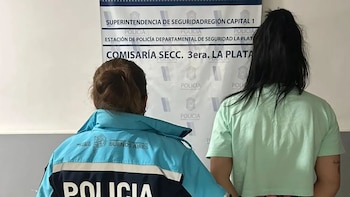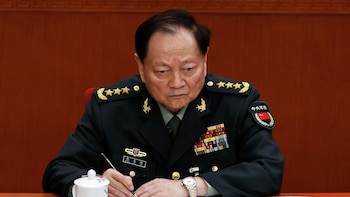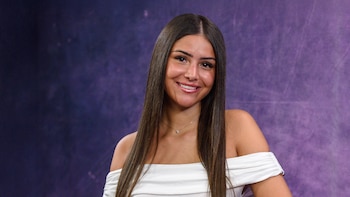
(ATR) José Ramón Fernández fought a revolution alongside Fidel Castro and then went on to lead the Cuban Olympic Committee for 21 years.
Fernandez died January 6 in Havana of natural causes.
His death closes a history of 40 years of brilliant victories in Olympic Games and other world events, accompanied by worrying recent decline, of boycott dramas, famous doping and desertions, and confirmation of State professionalism.
He took the presidency in 1997 after the death of the historical leader Manuel González Guerra. Guerra had been in charge of the COC since 1963 and was a member of the International Olympic Committee (IOC) since 1973.
He retired from office last October as the longest-serving NOC president in the world. Gymnast Roberto León Richards was elected to succeed him, with Fernandez becoming the first Honorary President in post-revolution Cuba.
Fernandez was considered the voice, eyes and ears of Cuban leader Fidel Castro in sports, long before taking over the COC.
From the Ministry of Education, where he was the head, and as Vice President of the government, Fernandez supervised the policy of the sports system at the national and international level from the beginning of the '80s.
A history of Pan-American Games and Olympic boycotts
A man of enviable memory, meticulous, and above all, proven loyal to Castro, he established his leadership skills organizing the biggest sports events ever held on the island.
He was president of the Organizing Committees of the XIV Central American and Caribbean Games in 1982 and the XI Pan American Games in 1991 in Havana.
In 1982 Havana managed to save the continuity of the regional Games after the last-minute resignation of Mayaguez, Puerto Rico. The games provided the opportunity for the first visit to Cuba by then IOC President Juan Antonio Samaranch elected in 1981.
Samaranch was worried about a possible boycott of the communist countries to Los Angeles 1984 in response to the U.S.-led boycott of the 1980 Moscow Games.
In the end, Cuba folded to the Soviet boycott after a controversial decision. Through Fernandez, Castro was responsible for correcting the initial justification made by the COC.
Cuba would be absent from Los Angeles not because of "security problems" as it had been first claimed. Instead Fernandez said Cuba would boycott in solidarity with other protestors.
The last-minute efforts of the president of the Los Angeles Organizing Committee, Peter Ueberroth, who a month before the opening of the Games would travel to Havana with Mario Vázquez Raña, president of the Association of National Olympic Committees, is worth noting. The two men spent three hours in Havana with Fernandez. They were unsuccessful in their mission to bring Cuba to Los Angeles.
"Ueberroth entered Cuba without a visa," Vázquez Raña confessed in his memoirs shortly before his death in February 2015.
For Castro, sport was one of the jewels of his crown and Fernandez, his right hand in the last four decades. While there were happy moments, not all was sunny.
Cuba hosted the Pan American Games in 1991 only after a bitter confrontation between Castro and Vázquez Raña, who was also president of the Pan American Sports Organization. Castro accused the Mexican sports leader of having favored the American city of Indianapolis over Havana in the race for the 1987 Pan Ams.
Coincidentally, in August of 1987, with his trip to Indianapolis for the Pan American Games, Fernandez became the highest ranked Cuban official to travel to the U.S. outside of forays to the U.N. by Castro and Ernesto Guevara.
The 1987 Pan Ams would be the first Pan American Games to feature a U.S. Vice President. George Bush attended the opening ceremony on behalf of President Ronald Reagan. Fernandez would arrive days later.
At the end of that same year Samaranch would return to Havana, along with the Italian Primo Nebiolo, president of the International Association of Athletics Federations. They wanted to convince Castro of the participation of Cuban athletes in the Olympic Games in Seoul, four years after Cuba’s absence in Los Angeles.
Relations with Mario Vázquez Raña and anti-drug fight
The vagaries of relations between Vazquez Raña and Fidel Castro - who had known each other since 1955 when they met in the Mexican capital on a shooting range - entered a happy stage after the success of the Pan American Games in Havana.
Strains returned in 1999 at the Winnipeg Pan Ams when the PASO president announced Cuban world record holder Javier Sotomayor had tested positive for cocaine.
Fernandez had established excellent relations with Vázquez Raña and was part of the PASO Executive Committee.
And while it was an important piece in Castro's media campaign to try to implicate an anti-Castro exile from Miami in the alleged doping of Sotomayor, Fernandez was careful not to publicly mention the name of the Mexican sports leader among the "slanderers" of the Cuban athlete. Sotomayor retired in 2001 after being accused of another positive drug test at an athletic meeting in Spain.
Through press interviews with Miguel Hernandez, then writing for Cuban press, now one of the writers of this article, Fernandez responded to the possibility of creating an anti-doping laboratory in Cuba. He also declared Havana's intentions to one day host an Olympic Games. He said the sports prestige of the island and his experience in organizing multi-disciplinary games were important qualities. In a very short time Castro fulfilled a commitment with the IOC to open a laboratory after the Winnipeg scandal.
But the weak economic situation of the communist nation was not a help. Two times Havana was proposed, two times rejected.
In 1994, Fernández was among the possible Cuban candidates to the IOC, but age did not favor him. A year later the then president of the INDER, Reynaldo González, would be named a new member of the IOC.
Tributes to Jose Ramon Fernandez
The death of Fernandez was marked with stories by the official press that remember him for his role in the 1961 Bay of Pigs battle against a brigade of Cuban exiles organized in the United States. His senior membership in the ruling Communist Party was also noted.
Fernández "interpreted with clarity the thinking of Commander in Chief Fidel Castro about the development of Cuban Sports," says INDER president Antonio Becali.
"Neven Ilic President of Panam Sports, his Executive Committee and the entire Pan American family lament the significant death at the age of 95, of Don José Ramón Fernández, a prominent sports leader of Cuba and an honorary member of the Executive Committee of Panam Sports," says a Twitter post by the continental sports organization.
Last October, when Fernández relinquished his position as head of the COC, IOC deputy director general Peré Miró, said Fernandez deserved "homage and respect".
At the time of his death, internal and external circumstances had forced Cuba to officially recognize the professionalism of its athletes. Signings of athletes to teams around the world is now permitted as a way to mitigate defections. The flight of Cuban athletes to foreign shores is one of the main causes in the decline of the national sport.
Last month an agreement with the Major League Baseball was settled to allow Cuban players to join teams in the U.S. without having to defect. Fidel Castro himself was involved until his death in November 2016 , through his son Antonio, a leader with the World Baseball Softball Confederation.
Fernandez was not oblivious to these negotiations. But the loyal colleague to Fidel kept quiet. To the end, he regarded the major leagues as a "talent thief".
Reported by Miguel Hernandez and Ed Hula. Hernandez covered the career of Jose Ramon Fernandez during his 40 years as a journalist in Cuba. .
Últimas Noticias
Sinner-Alcaraz, the duel that came to succeed the three phenomenons
Beyond the final result, Roland Garros left the feeling that the Italian and the Spaniard will shape the great duel that came to help us through the duel for the end of the Federer-Nadal-Djokovic era.
Table tennis: Brazil’s Bruna Costa Alexandre will be Olympic and Paralympic in Paris 2024
She is the third in her sport and the seventh athlete to achieve it in the same edition; in Santiago 2023 she was the first athlete with disabilities to compete at the Pan American level and won a medal.

Rugby 7s: the best player of 2023 would only play the medal match in Paris
Argentinian Rodrigo Isgró received a five-game suspension for an indiscipline in the circuit’s decisive clash that would exclude him until the final or the bronze match; the Federation will seek to make the appeal successful.

Rhonex Kipruto, owner of the world record for the 10000 meters on the road, was suspended for six years
The Kenyan received the maximum sanction for irregularities in his biological passport and the Court considered that he was part of a system of “deliberate and sophisticated doping” to improve his performance. He will lose his record and the bronze medal at the Doha World Cup.

Katie Ledecky spoke about doping Chinese swimmers: “It’s difficult to go to Paris knowing that we’re going to compete with some of these athletes”
The American, a seven-time Olympic champion, referred to the case of the 23 positive controls before the Tokyo Games that were announced a few weeks ago and shook the swimming world. “I think our faith in some of the systems is at an all-time low,” he said.




